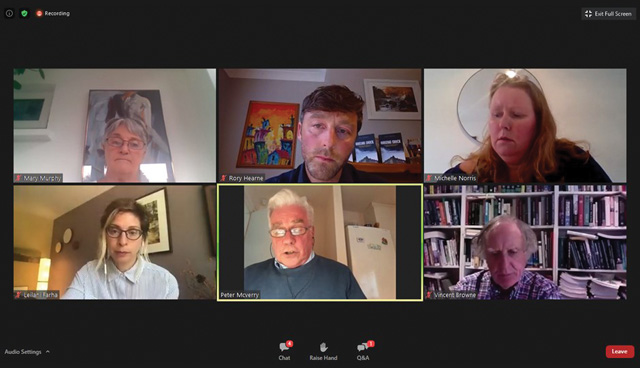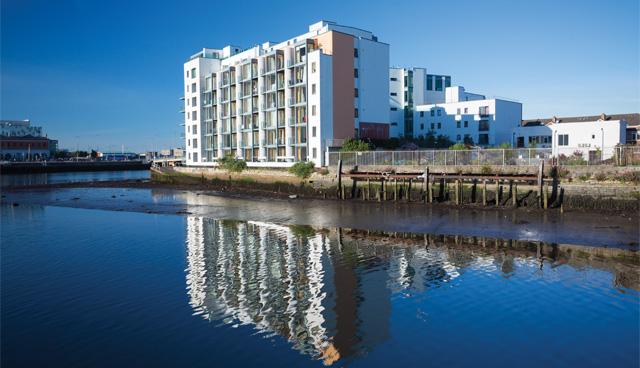
Housing Shock
22nd July 2020
The ‘new build’ numbers game
22nd July 2020Will the Programme for Government really deliver on Housing?

Amidst the tragedy of the Covid-19 pandemic, the ongoing housing crisis facing Ireland has been further highlighted, as those left on housing waiting lists and/or living in unsuitable accommodation were even more vulnerable to the risks of the disease. Beauchamps Partner and Head of Housing, Fidelma McManus writes.
Over the last few months, the focus of the Government and public bodies has rightly been on the global pandemic and health concerns caused by Covid-19. We are only starting to see the impact of the pandemic on both the building sector and the ability of purchasers to obtain mortgages, but the consequences will clearly be far reaching. The housing crisis is further compounded by the uncertainty facing the economy as a result of the pandemic, and whilst there are still significant volumes of people requiring social housing assistance, if there are further job losses these numbers will likely rise.
The recently approved Programme for Government (PfG), entitled Our Shared Future, sets out housing as a priority and includes a number of measures which will be considered to increase supply to both private and social housing, as well as increase affordability of housing for all. The newly appointed Minister for Housing, Local Government and Heritage, Darragh O’Brien of Fianna Fáil, described the PfG as “probably the largest state intervention in the housing market or the most significant state intervention in generations”. But will the PfG really deliver on its ambitious targets where others have failed?
Additional housing
The PfG includes an ambitious commitment to increase the social housing stock by an additional 50,000 units. The aim of the PfG is that the provision of these additional housing units will be local authority led, with assistance from approved housing bodies (AHBs) and other state agencies. AHBs supplied over 40 per cent of social housing in 2019, comprising over 4,000 homes across the country and, in recent years, have played an even more significant role in attempting to meet our social housing needs. One of the aims of the PfG is to look at moving AHBs off balance sheet, which should assist AHBs to access alternative funding and speed up the process of procuring completed homes.
Some AHBs feel that whilst affordable housing schemes are welcome, focus should also be on affordable rental to allow affordability for households in perpetuity, as there will always be those persons who will never be in a position to own their own home. In this regard, it is imperative that the stock of social housing across the country is maintained to ensure that we do not find ourselves
back in a similar position to the start of the housing crisis.
The Land Development Agency (LDA) is expected to play a pivotal role in this regard as the Government will legislate to establish the LDA on a statutory basis and task it to work with government departments, local authorities, state agencies and other stakeholders to assemble strategic sites in urban areas and ensure the sustainable development of social and affordable homes for rent and purchase.
Rental market
The problems continue for those who are not eligible for social housing, and do not, for whatever reason, qualify for a mortgage. Long-term rental is not something that is traditional in the Irish housing market, however security of tenure is much needed for significant numbers of people and the PfG refers to developing a cost rental model.
Again, it is intended this would be local authority led and reference is made to looking at international rental markets for inspiration, including the highly successful Vienna model.
Assistance to homeowners
One of the biggest challenges in Ireland is the cost of housing, which if anything is likely to rise further when delays caused by the pandemic are taken into account. Irish Institutional Property released a report in March 2020 which found that the final build cost in Dublin is over €330,000 for a two-bedroom house, and over €460,000 for an apartment. Whereas the PfG sets out a number of ways to assist homeowners purchase houses, it does not set out ways to reduce the cost of housing and many commentators would argue that therein lies the underlying issue with our dysfunctional housing market.

The PfG includes plans to retain and expand the Help to Buy scheme for new properties and self-build properties, which helps first-time buyers claim back a maximum of 5 per cent of the value of the property or €20,000 — whichever is lower. The Help to Buy scheme is scheduled to run until 31 December 2021 and it is likely this will be extended.
However, the PfG but does not give any detail as to what other ways the scheme might be expanded, whether it would include second-hand properties, whether the upper limit of the value of the property of €500,000 will be increased, or whether the tax requirement qualification will be reduced. These are all important considerations. One other option is that the scheme could be expanded to those who already own properties, which would be of great assistance to persons who may wish to upsize or downsize.
The PfG also includes a commitment to examine the issue of defective housing in the first 12 months, having regard to the recommendations of the Joint Oireachtas Committees on Housing report Safe as Houses, issued in December 2017. The recommendations in this report aim to “further improve building standards and to increase confidence in both the construction sector and the regulatory framework and to strengthen the protection of the consumer” and it seems that the PfG has only focused on one small item, rather than the broad changes recommended in the report.
Other proposals
The PfG sets out a commitment to a referendum on the right to housing, but there have not yet been any indications as to when this might occur, or what exact right would be included, and consideration must be given as to what difference a constitutional right to housing would have in circumstances where the stock of housing is simply not available.
It is welcome that there are several references to the importance of age-friendly housing for older people, however in the absence of concrete details on how this will be delivered, the concern is that it may an empty promise.
The PfG further states that the Government will establish a Commission on Housing to examine issues such as tenure, standards, sustainability, and quality of life issues in the provision of housing. Whereas all of this is most welcome, the question it raises is will this just be another quango, or will this Government actually take heed of recommendations and take steps to implement same?
The future
However, it is important to be mindful that the PfG is merely indicative and one of the problems in even getting the PfG agreed and approved by all three political parties was the difference in how each of the parties viewed it. As the PfG is an aspirational document, there is little detail as to how the various aims will be implemented in practice. Previous governments have all made various promises to solve the housing crisis and set out ideals which were not followed through, and it remains to be seen how much of the PfG’s aspirations will actually be implemented and what, if any, impact they will have on the ongoing housing crisis.
Profile
Fidelma McManus is a Commercial Property Partner who heads up Beauchamps’ specialist housing team. She is an acknowledged market leader in the acquisition and management of social housing projects and her practice extends to the acquisition, structuring, financing, disposal and leasing of all types of property, including distressed and partially complete residential developments, shopping centres, retail parks and offices. She also advises on all aspects of landlord and tenant law. Working with clients ranging from Approved Housing Bodies and public bodies to receivers, developers, institutional and private investors, Fidelma has unique insights into all issues relating to the provision of affordable and social housing.
Contact
T: +353 01 418 0600
E: f.mcmanus@beauchamps.ie






